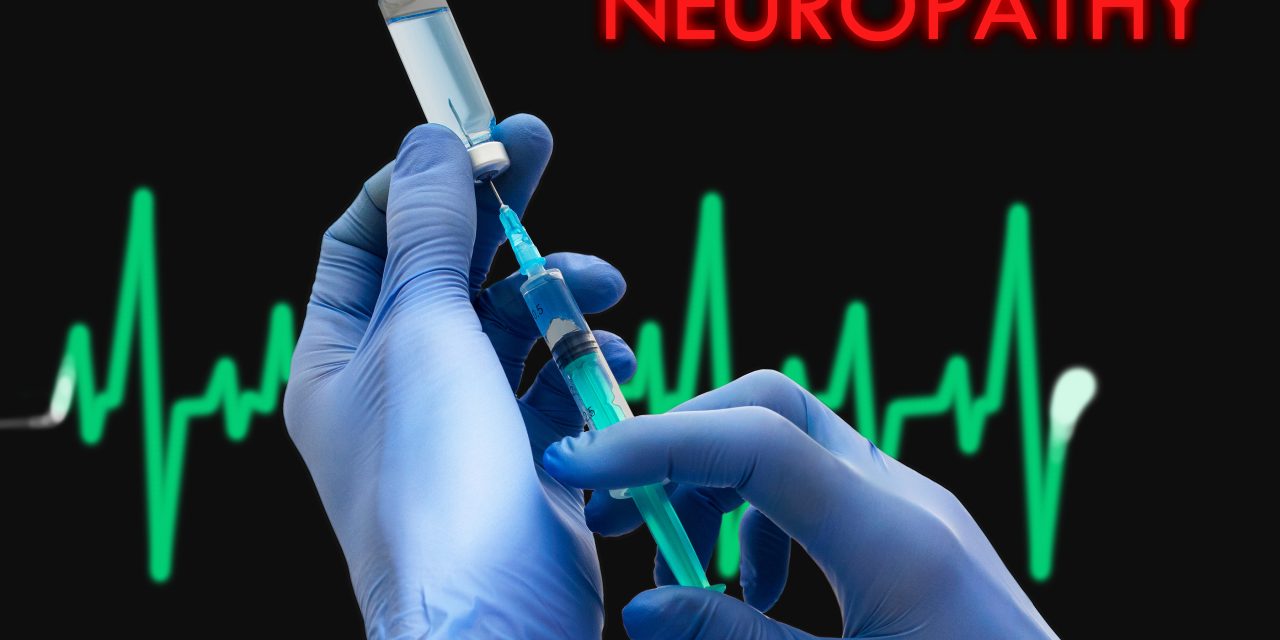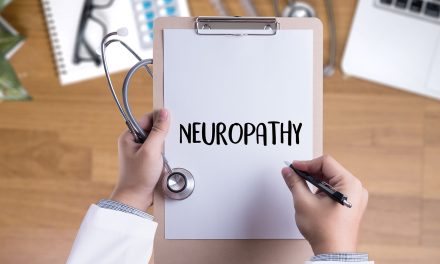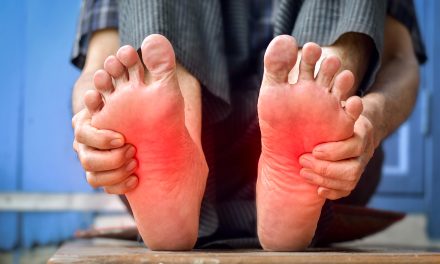Neuropathy, characterized by nerve damage, manifests in various forms with symptoms ranging from pain and numbness to impaired function. Treatment options depend on the type of neuropathy and its underlying causes. Some common forms include diabetic neuropathy, caused by high blood sugar levels, and peripheral neuropathy, affecting the extremities. Managing the condition often involves a combination of medical treatments, lifestyle modifications, and holistic approaches.
Medical interventions for neuropathy may include medications to manage pain and symptoms, physical therapy to improve mobility, or surgery in severe cases to alleviate pressure on nerves. Beyond medical treatments, patients may find relief through adjustments to their daily routine including regular exercise, dietary changes, and foot care for those with peripheral neuropathy. Moreover, natural supplements and vitamins, like alpha-lipoic acid and B-complex vitamins, may aid in nerve health and symptom management.
Alternative therapies, such as acupuncture and massage, are becoming increasingly popular as complementary treatments, while advancements in technology offer new hope through innovations like transcutaneous electrical nerve stimulation (TENS) and nerve regeneration therapies. With ongoing clinical research, emerging treatments continue to expand the horizon for neuropathy patients in search of relief.
Key Takeaways
- Treatment options for neuropathy are varied, including medication, lifestyle changes, and holistic measures.
- Supplements and vitamins may contribute to nerve health and alleviate neuropathy symptoms.
- Technological and research advancements offer promising new therapies for neuropathy management.
Understanding Neuropathy
Neuropathy refers to a range of medical conditions characterized by damage to the peripheral nerves—the extensive communications network that transmits information between the central nervous system (the brain and spinal cord) and every other part of the body. Neuropathy can result from various causes, including diabetes, genetic predispositions, infections, toxins, and auto-immune diseases.
The symptoms of neuropathy are diverse and depend on the type and number of nerves affected. They often include:
- Pain: Typically described as a burning, stabbing, or tingling sensation.
- Weakness: A loss of muscle strength in the affected areas.
- Sensory Changes: Including numbness or a diminished sense of touch.
Neuropathy is diagnosed through a combination of patient history, physical examination, and diagnostic tests such as nerve conduction studies and electromyography. Blood tests may also be utilized to identify underlying conditions.
Treatment strategies focus on managing the condition causing the neuropathy, relieving symptoms, and improving quality of life. They may involve:
| Treatments | Description |
|---|---|
| Medication | Pain relievers, anti-seizure medications, and antidepressants can help manage nerve pain. |
| Therapy | Physical therapy can help improve mobility and prevent muscle atrophy. |
| Surgery | In some cases, surgery might be necessary to relieve nerve pressure. |
Lifestyle modifications, such as maintaining optimal blood sugar levels for diabetics, regular exercise, and a balanced diet, are critical in managing and potentially slowing the progression of neuropathy.
Medical Treatments
Medical treatments for neuropathy aim to manage symptoms and address the underlying causes. Medications, rehabilitation, and invasive procedures play important roles in treatment plans, varying depending on the type and severity of neuropathy.
Prescription Medications
– Pain Relievers:
- Over-the-counter pain medications, such as nonsteroidal anti-inflammatory drugs (NSAIDs), are often used for mild pain.
- For more severe pain, doctors may prescribe stronger painkillers, including opioids, which must be used with caution due to the risk of addiction.
– Anti-seizure Medications:
- Medications originally developed for epilepsy may relieve nerve pain. Examples include gabapentin (Neurontin) and pregabalin (Lyrica).
– Topical Treatments:
- Capsaicin cream, which contains a substance found in hot peppers, can improve peripheral neuropathy symptoms.
- Lidocaine patches can also be applied to the skin to alleviate pain.
– Antidepressants:
- Certain antidepressants, such as tricyclics like amitriptyline, have been found effective in reducing neuropathic pain.
Physical Therapy and Rehabilitation
– Exercise:
- Regular exercise can help combat pain and improve overall strength and mobility.
– Physical Therapy:
- Trained physical therapists can develop personalized exercise plans that increase muscle strength, reduce neuropathy pain, and improve coordination.
Invasive Procedures
– Nerve Blocks:
- Anesthetic or anti-inflammatory medications are injected directly into the nerves or surrounding areas to relieve pain.
– Transcutaneous Electrical Nerve Stimulation (TENS):
- This therapy uses low-voltage electrical currents to relieve pain, with varied effectiveness depending on the individual.
– Surgery:
- In cases of neuropathies caused by pressure on nerves, such as carpal tunnel syndrome, surgery may be required to relieve pressure.
Lifestyle and Home Remedies
Managing neuropathy involves a proactive approach to lifestyle and home remedies that can support medical treatments. The focus is on maintaining healthy habits to possibly reduce symptoms.
Dietary Changes
A balanced diet rich in vitamins and nutrients, particularly B vitamins, vitamin E, and certain minerals, is crucial for nerve health. Individuals should incorporate:
- Whole grains and legumes for B vitamins
- Leafy greens and nuts for minerals like magnesium
- Lean protein sources such as chicken, fish, and tofu
Exercise and Physical Activity
Regular physical activity can improve muscle strength, prevent cramping, and decrease pain. Recommendations include:
- At least 30 minutes of moderate exercise, such as walking or swimming, 3-5 times a week
- Stretching exercises to maintain flexibility
- Strength training to build muscle support around neuropathic areas
Stress Reduction Techniques
Chronic stress can exacerbate neuropathy symptoms. Implementing stress reduction techniques may help to manage discomfort:
- Mindfulness meditation to foster a state of relaxation
- Yoga or tai chi, combining physical movement with breath control
- Scheduled downtime to ensure regular rest periods
These lifestyle adjustments can supplement medical treatments and may help alleviate some symptoms associated with neuropathy.
Natural Supplements and Vitamins
Natural supplements and vitamins may play a role in the management of neuropathy symptoms. Specific nutrients have been identified for their potential nerve-supportive properties.
Alpha Lipoic Acid
Alpha Lipoic Acid (ALA) is an antioxidant that may help improve nerve function. Studies suggest that 600 mg to 1,200 mg of ALA daily may be beneficial for those with diabetic neuropathy.
Acetyl-L-Carnitine
Acetyl-L-Carnitine is believed to support nerve cell function and promote nerve regeneration. Doses of 500 mg to 2,000 mg per day are often recommended for neuropathy support.
B-Complex Vitamins
B-Complex vitamins are crucial for nerve health, especially Vitamin B12 and B6. A deficiency in these can contribute to neuropathy. Supplementing with a B-Complex can help maintain nerve health. Key supplements include:
- Vitamin B12: Generally, doses of 500-1,000 mcg may be taken to help in nerve repair.
- Vitamin B6: Excessive intake should be avoided, as it too can cause neuropathy; however, maintaining adequate levels of Vitamin B6 is necessary.
Alternative Therapies
Alternative therapies for neuropathy focus on managing symptoms and improving quality of life. They are often used in conjunction with conventional treatments.
Acupuncture
Acupuncture involves the insertion of thin needles into specific points on the body. It is believed to stimulate the nervous system and promote the release of natural pain-relieving chemicals.
- Effectiveness: Studies have shown that it can help alleviate pain for some individuals with neuropathy.
- Frequency: Treatment schedules may vary, with some patients receiving sessions 1-2 times per week.
Biofeedback Therapy
Biofeedback therapy uses electronic monitoring to teach patients to control bodily processes that are normally involuntary, such as muscle tension.
- Tools: Sensors and monitors provide feedback regarding muscle activity, temperature, and heart rate.
- Goal: Patients learn to make adjustments that may reduce pain and improve neuropathic symptoms.
Massage Therapy
Massage therapy employs pressure and manipulation of the body’s soft tissues to relieve neuropathy symptoms.
- Techniques: May include Swedish, deep tissue, or shiatsu massage, depending on the individual’s condition.
- Benefits: Can improve circulation, reduce stress, and decrease pain in neuropathy patients.
Technological Innovations
Recent technological advancements offer promising treatments for those suffering from neuropathy. These innovations aim to alleviate symptoms and improve nerve function through non-invasive techniques.
Transcutaneous Electrical Nerve Stimulation (TENS)
Transcutaneous Electrical Nerve Stimulation, or TENS, utilizes low-voltage electrical currents to relieve pain. Patients experience this therapy through a TENS unit, a battery-operated device that delivers currents through electrodes placed on the skin. This method can be adjusted for intensity and frequency, making it a versatile option for managing neuropathic pain. The TENS therapy’s effectiveness might vary depending on the individual and the specific type of neuropathy they have.
Plasma Exchange and Intravenous Immune Globulin
Plasma exchange and intravenous immune globulin (IVIG) are treatments that target the immune system’s role in certain neuropathies.
- Plasma Exchange: This process involves removing blood plasma that contains harmful antibodies and replacing it with good plasma or a plasma substitute. This can reduce symptoms of neuropathy associated with autoimmune diseases.
- Intravenous Immune Globulin (IVIG): IVIG therapy entails administering antibodies derived from donor blood. These antibodies can help modulate the immune system, providing relief for patients with immune-related neuropathies.
Both treatments require careful monitoring and are typically considered when other forms of therapy have not been effective.
Prevention Strategies
Preventative measures against neuropathy are primarily focused on maintaining overall health and avoiding specific risk factors that can contribute to nerve damage.
Blood Sugar Management
Individuals with diabetes or at risk of diabetes should closely monitor and manage their blood sugar levels. Consistent blood sugar control can significantly reduce the risk of diabetic neuropathy.
- Monitoring: Regular blood glucose checks using a monitoring device.
- Diet: A balanced diet with a controlled intake of carbohydrates.
- Medication: Following prescribed medication schedules rigorously.
Avoiding Toxins
Exposure to certain toxins can lead to nerve damage, and therefore, it is critical to reduce contact with these substances.
- Chemicals: Avoid direct exposure to industrial chemicals and heavy metals.
- Lifestyle Choices: Limit or abstain from alcohol consumption.
- Medications: Beware of side effects from certain medications—consult a healthcare provider for alternatives.
Clinical and Emerging Research
Clinical and emerging research on neuropathy focuses on innovative treatments that may revolutionize management and care. Two key areas include stem cell therapy and gene therapy, which are garnering considerable attention for their potential to address underlying neuropathic mechanisms.
Stem Cell Therapy
Stem cell therapy represents a cutting-edge approach in the treatment of neuropathy. Researchers are investigating the application of stem cells to regenerate damaged nerves and improve neurological function. Scientific studies have indicated that mesenchymal stem cells (MSCs) can potentially differentiate into neuron-like cells, suggesting a pathway for restoring nerve function. Clinical trials are currently underway to evaluate the effectiveness and safety of stem cell therapies for specific types of neuropathy.
Gene Therapy
Gene therapy is another area of intensive research for neuropathy cures. By introducing or editing genes within the body’s cells, this method aims to correct the genetic abnormalities that cause inherited neuropathies. For instance, gene therapy techniques such as CRISPR-Cas9 have the ability to directly target and modify the DNA sequences responsible for neuropathic conditions. Progress in gene therapy for neuropathy has demonstrated potential in preclinical models, and human clinical trials are in process to assess therapeutic outcomes in hereditary neuropathies.
Support and Resources
For individuals managing neuropathy, numerous resources are available to provide support, information, and assistance. Patients can find valuable help through the following avenues:
- National Organizations: These include the Neuropathy Association and the Foundation for Peripheral Neuropathy. They offer a wealth of information, research updates, and patient resources.
- Local Support Groups: Many communities have support groups that meet regularly, allowing individuals with neuropathy to connect and share experiences.
- Medical Professionals: Neurologists and pain management specialists can guide effective treatments and refer patients to additional support services.
- Online Forums and Communities: Websites such as the Neuropathy Support Network facilitate peer support through online discussions.
Healthcare Providers
- A primary care physician can provide initial guidance and refer patients to specialists.
- Neurologists specialize in treating nerve-related conditions and can create tailored treatment plans.
| Resource Type | Examples |
|---|---|
| National Organizations | Neuropathy Association, Foundation for Peripheral Neuropathy |
| Support Groups | Local hospital-based groups, community centers |
| Online Platforms | Neuropathy Support Network, HealthUnlocked |
Educational Materials and Guides
Patients can enhance their understanding of neuropathy through books, pamphlets, and online articles, ensuring they are well-informed about their condition.
Financial Assistance Programs
For those struggling with the cost of treatment, various programs may offer financial support or assistance with medication expenses.
Complications and Management
Neuropathy can lead to a range of complications. Persistent numbness may increase injury risk, as individuals may not notice wounds. Infections can escalate due to unnoticed injuries, particularly in diabetic patients. The management of such complications involves meticulous foot care, regular inspection for injuries, and timely medical intervention.
Effective management strategies include:
- Medications: To reduce pain, physicians might prescribe drugs such as anticonvulsants or antidepressants, which are shown to relieve neuropathic pain.
- Therapies: Physical therapy can help strengthen muscles weakened by nerve damage. For some types of neuropathy, Transcutaneous Electrical Nerve Stimulation (TENS) may be beneficial.
| Lifestyle Adjustments | Description |
|---|---|
| Diet | High in nutrients and low in sugar to help manage diabetes and reduce symptoms. |
| Exercise | Regular, moderate exercise improves overall nerve health. |
| Quitting Smoking | Smoking cessation improves blood flow, benefiting nerve and vascular health. |
Patients with neuropathy may require assistance with mobility and daily activities. The installation of safety devices and the use of assistive aids might be necessary to prevent falls. They must also maintain regular contact with their healthcare team to monitor the progress and adjust treatment as needed.
Monitoring and Follow-up
Regular monitoring by a healthcare professional is critical. It can lead to timely adjustments in therapy and ensure early detection of potential complications. Follow-ups typically involve checking neurological status and evaluating the effectiveness of treatment interventions.
Frequently Asked Questions
The following commonly asked questions provide detailed insights into potential treatments and therapies for neuropathy, particularly focusing on the lower extremities.
What treatments are available for neuropathy in legs and feet?
Several approaches are utilized to treat neuropathy in the legs and feet. These include physical therapy, prescription medications, and sometimes surgery for severe cases. Strict glucose control for diabetic patients is also crucial in managing diabetic neuropathy.
Are there effective home remedies for neuropathy in feet?
Home remedies, such as warm baths, exercise, and over-the-counter pain relievers, may alleviate symptoms. However, they should complement, not replace, medical treatment. Dietary adjustments and supplements like alpha-lipoic acid and acetyl-L-carnitine might also have beneficial effects.
What prescription medications are commonly used for neuropathy?
Prescription medications for neuropathy often include anticonvulsants, such as gabapentin and pregabalin, and antidepressants, like amitriptyline and duloxetine. These medicines are designed to manage pain and discomfort associated with neuropathy.
Can peripheral neuropathy be fatal?
Peripheral neuropathy itself is rarely fatal, but it can lead to complications that increase the risk of mortality, such as infections and falls. The underlying condition causing neuropathy could also have life-threatening consequences if not properly managed.
What are the latest advancements in neuropathy treatment?
Recent advancements in neuropathy treatment include the development of new medications, improved glycemic control methods for diabetes, and advances in electrical nerve stimulation therapies. Research into stem cell therapy and gene therapy also shows promise for future treatments.
How might one reverse neuropathy through natural methods?
Although neuropathy is generally not reversible, certain natural methods can help manage symptoms and improve quality of life. These methods include maintaining a balanced diet, regular exercise, and practicing good foot care to prevent complications. It’s essential to consult a healthcare provider for a tailored approach to managing neuropathy.
Conclusion
In conclusion, there are several effective treatments and solutions for neuropathy that can help manage symptoms and improve quality of life. From medications and physical therapy to lifestyle changes and alternative therapies, individuals have a range of options to explore. It’s important to work closely with healthcare professionals to develop a personalized treatment plan that addresses the underlying causes and provides relief from neuropathic pain and discomfort. With the right approach, many individuals can find relief and improve their overall well-being despite living with neuropathy.





















